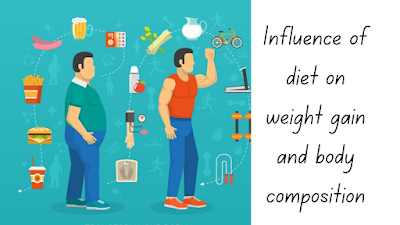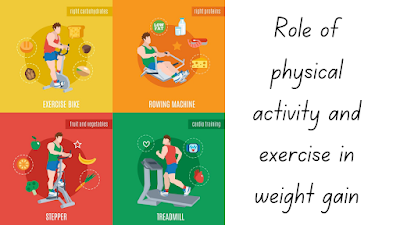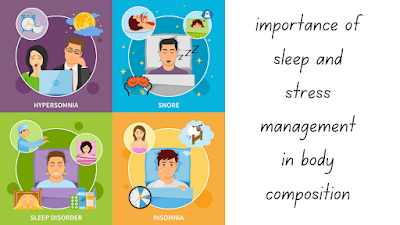The Surprising Science Behind Weight Gain: Understanding the Factors that Influence Body Composition
Have you ever wondered why some people seem to gain weight so easily, while others can eat whatever they want without consequences? The answer lies in the surprising science behind weight gain and the factors that influence our body composition. It's not just about calories in versus calories out; there are numerous biological, genetic, and environmental factors at play. In this eye-opening article, we will delve into the fascinating world of weight gain and explore how hormones, metabolism, lifestyle choices, and even our gut microbiome can impact our body's ability to gain or lose weight. Prepare to be amazed as we uncover the hidden truths behind weight gain and discover the strategies to achieve a healthier and more balanced body composition. Whether you're looking to shed a few pounds or simply understand your body better, this article will provide you with the knowledge and insights you need to navigate the complex world of weight management.
The role of genetics in weight gain
Genetics play a significant role in determining our body composition and predisposition to weight gain.
Studies have shown that certain genes can influence our metabolism, appetite, and even our fat distribution. For example, individuals with a family history of obesity may have a higher likelihood of developing weight-related issues themselves. Additionally, variations in genes related to hormone regulation and energy expenditure can affect how efficiently our bodies process and store calories. While genetics may contribute to our weight, it's essential to remember that they are not the sole determining factor. Lifestyle choices and environmental factors also play a crucial role in overall body composition.
Research has shown that hormonal changes can have a profound impact on our body composition. Hormones such as insulin, leptin, and ghrelin play a crucial role in regulating hunger, satiety, and fat storage. For example, insulin resistance, a condition where the body's cells become less responsive to insulin, can lead to weight gain and metabolic disorders. Similarly, imbalances in leptin, the hormone responsible for signaling fullness to the brain, can disrupt our appetite regulation and contribute to overeating. Understanding the intricate relationship between hormones and body composition can help us make informed decisions about our diet and lifestyle choices.
The influence of diet on weight gain and body composition
When it comes to weight gain, diet is undeniably a significant factor.
Consuming excess calories, especially from refined sugars and unhealthy fats, can lead to weight gain and an increase in body fat. However, it's important to note that not all calories are created equal. The quality of our diet, including the types of foods we eat, can have a profound impact on our body composition. A diet rich in whole, nutrient-dense foods, such as fruits, vegetables, lean proteins, and whole grains, can support a healthy body composition by providing essential nutrients and promoting satiety. On the other hand, a diet high in processed foods, sugary beverages, and unhealthy fats can contribute to weight gain and negatively impact our overall health.
In addition to the types of foods we consume, the timing of our meals can also influence weight gain. Research suggests that practicing intermittent fasting or time-restricted eating, where we limit our eating window to a specific number of hours per day, can have positive effects on body composition. By giving our bodies a break from constant digestion, we allow it to enter a state of fasting, which can promote fat burning and improve metabolic health. However, it's important to approach fasting and any dietary changes with caution and consult with a healthcare professional or registered dietitian to ensure it is suitable for individual needs and goals.
The role of physical activity and exercise in weight gain
Physical activity and exercise are essential components of maintaining a healthy body composition.
Regular exercise can help increase lean muscle mass, boost metabolism, and promote fat loss. Both cardiovascular exercises, such as running or cycling, and strength training exercises, like weightlifting or resistance training, have their unique benefits when it comes to body composition. Cardiovascular exercises help burn calories and improve cardiovascular health, while strength training exercises help build muscle and increase metabolic rate even at rest. Combining both types of exercises can provide optimal results for weight management and body composition.
It's important to find activities that you enjoy and can stick to in the long term. Whether it's dancing, hiking, swimming, or playing a sport, incorporating physical activity into your daily routine can have a significant impact on your overall health and body composition. Remember, consistency is key. Aim for at least 150 minutes of moderate-intensity aerobic activity or 75 minutes of vigorous-intensity activity per week, along with strength training exercises at least twice a week for optimal benefits.
The importance of sleep and stress management in body composition
Sleep and stress management play vital roles in maintaining a healthy body composition.
Lack of sleep and chronic stress can disrupt hormonal balance, increase appetite, and promote weight gain. Research has shown that sleep deprivation can alter the levels of hormones involved in hunger and satiety, leading to increased food intake and a preference for high-calorie, unhealthy foods. Additionally, stress can trigger emotional eating and contribute to the accumulation of visceral fat, which is associated with an increased risk of metabolic disorders.
To promote better sleep, establish a consistent sleep routine, create a sleep-friendly environment, and prioritize relaxation before bedtime. Managing stress can be achieved through various techniques such as mindfulness meditation, deep breathing exercises, regular physical activity, and seeking support from friends, family, or professionals. By prioritizing sleep and stress management, we can optimize our body's ability to maintain a healthy weight and composition.
The effects of medication and medical conditions on weight gain
Certain medications and medical conditions can contribute to weight gain or make it more challenging to maintain a healthy body composition.
For example, some antidepressant medications, antipsychotics, and corticosteroids are known to cause weight gain as a side effect. Medical conditions such as polycystic ovary syndrome (PCOS), hypothyroidism, and Cushing's syndrome can also affect metabolism, hormone regulation, and appetite control, leading to weight gain or difficulty losing weight. If you suspect that your medication or a medical condition is affecting your weight, it's crucial to consult with a healthcare professional for appropriate management and support.
Environmental factors that contribute to weight gain
Our environment can significantly influence our body composition and weight management efforts.
Factors such as easy access to unhealthy foods, sedentary lifestyles, and the obesogenic nature of our surroundings can contribute to weight gain. The abundance of highly processed, calorie-dense foods and the prevalence of sedentary activities, such as prolonged sitting and screen time, make it challenging to maintain a healthy body composition. Additionally, factors such as socioeconomic status, cultural norms, and social support systems can also impact our ability to make healthy choices and maintain a balanced weight. Recognizing these environmental influences can help us make conscious decisions to create a healthier living environment and support our weight management goals.The psychology behind weight gain and body image
Weight gain and body image are deeply intertwined with psychological factors.
Society's emphasis on thinness and unrealistic beauty standards can contribute to body dissatisfaction and a negative body image. This, in turn, can lead to disordered eating patterns, emotional eating, and unhealthy weight management behaviors. It's essential to cultivate a positive body image and develop a healthy relationship with food and exercise. Practicing self-compassion, surrounding ourselves with positive influences, and seeking professional support when needed are crucial steps towards achieving a balanced perspective on weight and body image.Strategies for managing and maintaining a healthy body composition
Maintaining a healthy body composition requires a holistic approach that encompasses various aspects of our lives.
Here are some strategies to help you manage and maintain a healthy body composition:1. Set realistic goals: Instead of aiming for drastic weight loss, focus on achieving a sustainable and healthy body composition.
2. Adopt a balanced and nutritious diet: Choose whole, nutrient-dense foods and practice portion control.
3. Incorporate regular physical activity: Find activities you enjoy and make exercise a regular part of your routine.
4. Prioritize sleep and stress management: Establish a consistent sleep routine and practice stress reduction techniques.
5. Seek professional guidance: Consult with a healthcare professional, registered dietitian, or therapist for personalized support and guidance.
6. Create a supportive environment: Surround yourself with positive influences, seek social support, and make conscious choices to create a healthy living environment.
By implementing these strategies and taking a holistic approach to weight management, you can achieve and maintain a healthier and more balanced body composition.
Conclusion: Taking a holistic approach to understanding weight gain
Understanding the science behind weight gain and body composition is crucial for achieving long-term success in weight management.
It's not just about calories in versus calories out; numerous biological, genetic, and environmental factors come into play. From genetics and hormones to diet, physical activity, sleep, and stress management, each aspect of our lives can impact our body's ability to gain or lose weight. By taking a holistic approach and addressing all these factors, we can achieve a healthier and more balanced body composition. Remember, it's not just about the numbers on the scale, but also about nourishing our bodies, cultivating a positive mindset, and creating a supportive environment. With the knowledge and insights gained from this article, you can embark on a journey towards a healthier and happier you.








Comments
Post a Comment